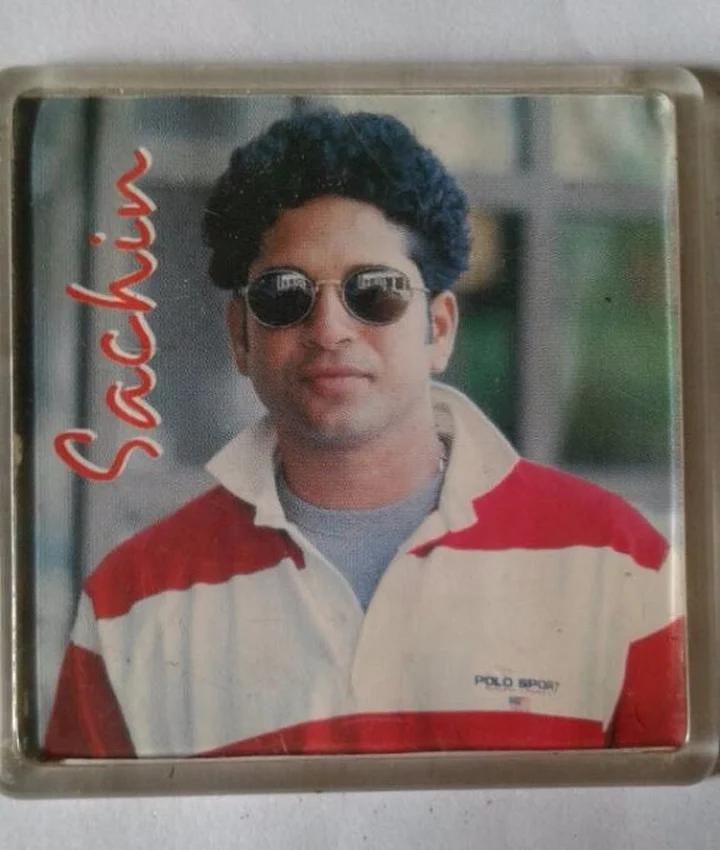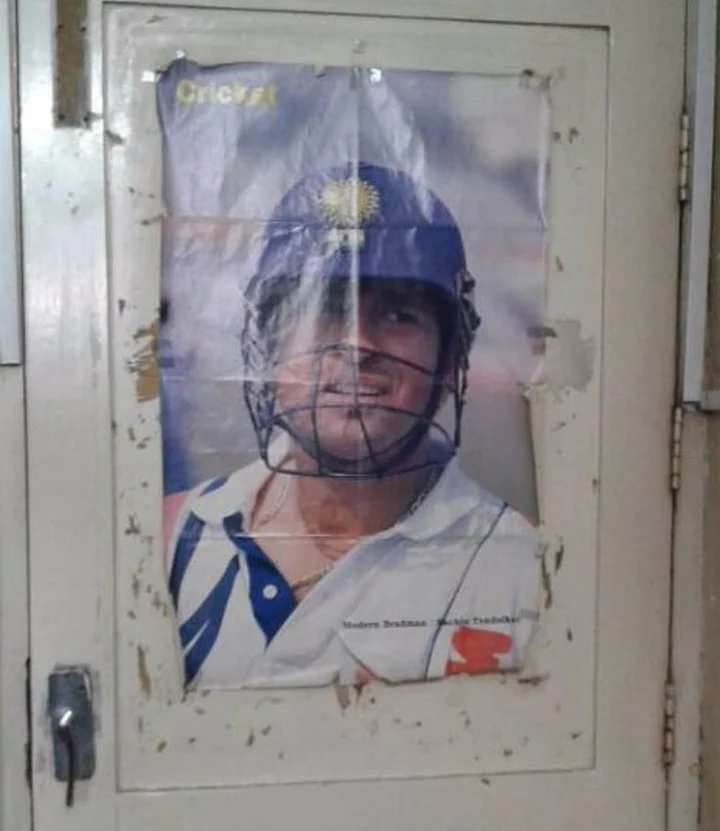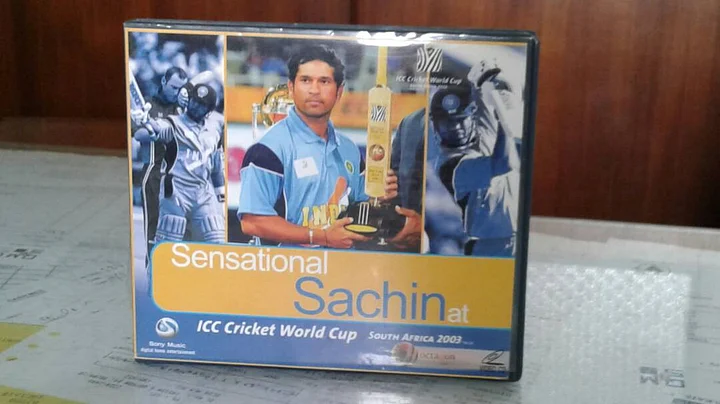(This article was first published on 24 April 2019. It is being re-posted from The Quint’s archives on the occasion of Sachin Tendulkar's 50th birthday.)
Towards the end of 'Sachin: A Billion Dreams’, an old clipping of Sachin’s father Ramesh Tendulkar is played. “Many people across India consider Sachin to be part of their own families,” he says, beaming with pride. Sitting in the theatre, I am crying as I think about how as a child, I used to refer to Sachin as my elder brother.
For 140 minutes of the Sachin film, a parallel track ran in my mind – of the memories I associated with the events unfolding on the screen. As the scenes flashed before my eyes, I was delving into a Pensieve of my own.
I remember 23 May 1999 like it was yesterday. My family and I were in Varanasi on vacation. All my relatives wanted to go sightseeing but my father and I were adamant. We would not budge from the hotel.
I was six years old, too young to know what the passing of a dear one meant. But I knew that Sachin had lost his father. As I sat next to my own, we watched as he took the field against Kenya. Sitting in front of our telly, 7,533 kilometres from Bristol, we felt almost connected to him. A strange solidarity. The cheers were muted, the celebrations restrained. As he reached the three-figure mark and raised his eyes to the skies, we knew it was for his father. In my hotel room, I too rose to give him a standing ovation.
I had felt the pain, and I could sense the tribute. As I rose to applaud my hero, it was for more than the runs he had scored that afternoon.
In the space of one innings, Sachin had shown us he was human. Vulnerable. Emotional. And yet, a superhero – who took mourning in his stride and made it a milestone in tribute.
The Birthday Gift
As scenes from ‘Desert Storm’ play out on the big screen, the audience watching the first day, first show of ‘Sachin: A Billion Dreams’ breaks into rapturous cheers. I get goosebumps, and as the movie continues, I find myself transported back in time, yet again.
It was 22 April 1998. We were huddled in front of an old Televista television at home, watching Sachin decimate an impressive Australian attack in the semifinal of the Coca-Cola Cup at Sharjah. I was all of five years old and it was a night of firsts. Never had I stayed up past midnight before. Never had I seen a desert storm. And never had I seen batting as phenomenal. Neither had Tony Greig, evidently.
Hours ahead of the final two days later, my father decided it was time for a new television set. “Sachin is going to smash another century tonight,” he predicted, “and we must watch it on a nice, new TV”.
It was 24 April and he joked that it would be Sachin’s birthday gift. A 25-inch Sony Trinitron set soon made its way home. Later that night, the birthday boy did have a gift in store for all of us. The Australians were pummelled again as Sachin Ramesh Tendulkar guided India to victory.
That television has always remained special. Along with the Sachin poster on my bedroom door, the Sachin magnet on my cupboard and the numerous Sachin books, magazines and CDs that line my shelves, the television too is part of the Sachin memorabilia at my house. After all, it’s what brought the ‘Desert Storm’ home.
- 01/03The door magnet on my cupboard at home. (Photo: Meghnad Bose/The Quint)

- 02/03The poster on my bedroom door. (Photo: Meghnad Bose/The Quint)

- 03/03A CD of Sachin’s exploits at the 2003 World Cup. (Photo: Meghnad Bose/The Quint)

A Tale of Two Finals
On 25 June 1983, a 10-year-old Sachin watched as Kapil Dev’s men upset a dominant West Indian side to be crowned world champions at Lord’s. In the docu-drama, Sachin reveals it was that victory that made him want to become a cricketer, and a world champion.
On my 10th birthday, 23 March 2003, India were taking the field against Australia in the World Cup final. I knew the story. I knew the parallels. I had written the fairytale in my mind too many times already. Yet it was not to be. I spent 20 hours of my birthday awaiting the best gift ever. At around half past eight, as the last Indian wicket fell, I went inside my room and wept. I told myself that 2007 would be our year.
Four years later, it was yet again on 23 March that India crashed out of the World Cup after losing to Sri Lanka in the group stage. Another birthday ruined.
But I was not one of those who threw brickbats at the team. I did not identify with the lunatics who burned effigies and pelted stones at the houses of the cricketers. They were my team and they had done us proud on numerous occasions. Every time they faltered, they rose again to conquer. Hadn’t Sachin taught us that?
In his debut series in 1989, after sustaining a nosebleed from a bouncer by Waqar, Sachin rose to score a 57 in that innings. “Main khelega,” he had told Sidhu at the non-striker’s end.
Years later, he fought excruciating back pain for a 136 that took India to the brink of victory versus Pakistan in Chennai. But the lower order faltered and India fell short. We won some, we lost some, I had consoled myself.
In 2007, too, I did the same. I rewrote the fairytale in my head one more time. Sachin would lift the Cup at his home ground – 2011 would be ours. It would be India’s, and Sachin’s. The dream would come true.
When it did, the celebrations were unbridled. My friends and I did a Sourav from the iconic NatWest final versus England in 2002 – we ran shirtless down the main road outside my house.
People stopped their cars in the middle of the road and danced, waving the tricolour and hugging strangers.
A young Virat Kohli articulated what all of us were thinking.
Sachin Tendulkar has carried the burden of the nation for 21 years. It was time we carried him.
The Farewell
As the movie came to a close, it was a finish we knew all too well. I had travelled to Kolkata and Mumbai to watch Sachin’s last two Test matches from the stands. As the theatre rang with chants of “Sachiiiin, Sachiiiin...,” I felt I was back at Eden Gardens and Wankhede.
I remembered the feeling when he came out to bat in the first innings of his final Test. The conscious attempt to savour every moment, every delivery. For he might not face another.
The docu-drama leaves out my favourite part of Sachin’s farewell speech. But I remembered. "I want to thank all the people who have supported me endlessly, whether I scored a zero or I scored 100 plus. I’ve met so many guys who’ve fasted for me, who’ve prayed for me, done all sorts of things for me. You know, without all that, life wouldn’t have been like this for me.”
Thankfully, the makers retained the next bit:
The memories that you’ve left with me, will always be with me forever and ever. Especially ‘Sachin... Sachin’, which will reverberate in my ears till I stop breathing. Thank you very much.
The chants grew louder than ever. Everywhere I looked, men, women and children were crying.
And like we had left Wankhede four years ago, I left the hall with tears streaming down my face. I will not be able to visit Wankhede to watch Sachin play again, but I know I will revisit the moment on the silver screen.
It will never be the same, but it will forever remain magical.
(This article was first published on 28 May 2017. It is being republished on Sachin’s 46th birthday.)
(At The Quint, we question everything. Play an active role in shaping our journalism by becoming a member today.)



